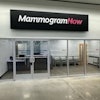
The five states and the District of Columbia that expanded their Medicaid coverage after the Patient Protection and Affordable Care Act of 2010 (ACA) first went into effect showed larger increases in cancer screening rates than states that did not, according to a study published online May 22 in the American Journal of Preventive Medicine.
A team led by Stacey Fedewa, PhD, of the surveillance and health services research department at the American Cancer Society (ACS) estimated that if states that did not expand Medicaid coverage after ACA had done so, more than 355,000 low-income adults would have been screened between 2012 and 2016.
"Health insurance is a strong predictor of cancer screening, and the uninsured and those with lower socioeconomic status are more likely to be diagnosed at late stage and die from screen-detectable cancers, including colorectal cancer," Fedewa said in a statement released by the ACS.
The ACA provided federal support for states to expand Medicaid insurance coverage to low-income adults to boost access to preventive care for these individuals. Five states and the District of Columbia expanded Medicaid coverage in 2010 and 2011, while an additional 21 states followed suit in 2014 and five more in 2015 and 2016. Nineteen states did not expand coverage.
To investigate whether these expansions boosted colorectal screening attendance, Fedewa's group used data from the 2012, 2014, and 2016 Behavioral Risk Factor Surveillance System (BRFSS), a state-based telephone survey managed by the U.S. Centers for Disease Control and Prevention (CDC) that tracks screening patterns among low-income adults.
The number of low-income adults age 50 to 64 who were current with colorectal cancer screening grew between 2012 and 2016, the researchers found.
| Change in screening rates by timing of state Medicaid expansion | |||
| Timing of Medicaid expansion | 2012 | 2016 | Screening rate growth (percentage points) |
| Very early adoption | 42.3% | 51.1% | 8.8 |
| Early adoption | 49.6% | 52.5% | 2.9 |
| Did not expand | 44.2% | 48% | 3.8 |
The rate of individuals with recent colorectal cancer screenings (within the past two years) increased by eight percentage points (from 30.1% to 38.1%) in very early states and 2.8 percentage points (from 29.1% to 31.8%) in nonexpansion states, Fedewa's group wrote.
The researchers noted that the growth in colorectal cancer screening prevalence in the very early expansion states was not immediate, perhaps reflecting the lead time between people getting insurance and completing the screening process.
In addition, only modest growth occurred in breast cancer screening rates in low-income women living in states that expanded Medicaid coverage, the team found. The group hypothesized that this trend could be due to long-term support for mammography in low-income populations through projects such as the CDC's National Breast and Cervical Cancer Early Detection Program.
In any case, an accurate picture of ACA's effect on cancer screening remains to be seen, the group concluded.
"It is likely that the full impact of Medicaid expansions on cancer screening may not yet be fully visible, and the previously reported modest improvements in early stage at diagnosis for screen-detectable cancers could progress further," the team concluded.



















